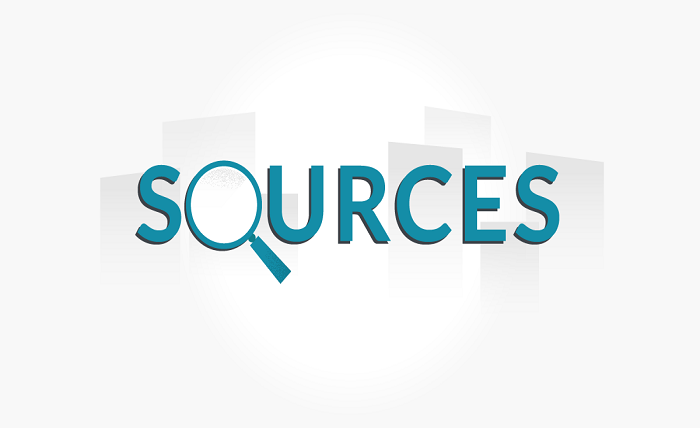As a newcomer to any field or industry, it can be overwhelming to navigate through the vast amount of information available. With so many sources to choose from, it can be difficult to determine which ones are credible, trustworthy, and accurate. In this article, we will discuss the importance of quality sources for newcomers, and provide tips for identifying and utilizing these sources effectively.
Introduction
As a newcomer, it’s important to establish a strong foundation of knowledge and understanding in your chosen field or industry. However, this can be challenging when you’re not sure where to turn for reliable information. With so many sources available – from online articles and blogs to academic journals and textbooks – it’s crucial to identify those that are trustworthy and accurate. By doing so, you can avoid misinformation, misunderstandings, and potential mistakes that could set you back in your learning and development.
The Importance of Quality Sources
So why are quality sources so important for newcomers? Let’s take a closer look at some of the key reasons:
Accuracy and reliability
One of the primary benefits of quality sources is that they are accurate and reliable. They are based on sound research, data, and evidence, and are typically written or produced by experts in the field. This means that you can trust the information they provide, and can use it to inform your own learning and decision-making.
Depth and breadth of information
Quality sources also tend to offer a greater depth and breadth of information than less credible sources. They often provide a more comprehensive overview of a topic or issue, and may delve into more complex or nuanced aspects that are important for newcomers to understand. This can help you gain a more well-rounded understanding of your field or industry, and can help you identify areas that you may want to explore further.
Access to current and relevant information
Another benefit of quality sources is that they often provide access to current and relevant information. This is particularly important in industries that are constantly evolving or changing, as outdated or inaccurate information can be misleading or even harmful. By staying up-to-date with the latest research, trends, and developments, you can ensure that you are equipped with the most relevant and useful knowledge.
Tips for Identifying Quality Sources
Now that we’ve explored the importance of quality sources, let’s take a look at some tips for identifying and utilizing them effectively:
Look for reputable publishers and authors
One of the easiest ways to identify quality sources is to look for reputable publishers and authors. Academic journals, for example, are typically published by well-respected institutions and organizations, and are peer-reviewed to ensure accuracy and quality. Similarly, articles or books written by recognized experts in the field are more likely to provide reliable information than those written by unknown or unestablished authors.
Check for citations and references
Another way to evaluate the quality of a source is to check for citations and references. Quality sources will typically cite their sources of information, allowing you to verify the accuracy and reliability of their claims. Additionally, they may include a reference list or bibliography that provides further resources for you to explore.
Consider the source’s bias and perspective
It’s also important to consider the bias and perspective of a source when evaluating its quality. All sources have some degree of bias, whether conscious or unconscious, so it’s important to be aware of this and to critically evaluate the information provided. Consider the source’s affiliations, funding sources, and political or ideological leanings, and how these might impact the information provided.
Evaluate the writing style and tone
Finally, it’s important to evaluate the writing style and tone of a source when assessing its quality. Quality sources are typically written in a clear, concise, and objective manner, and avoid overly emotive or biased language. Pay attention to the author’s tone, and how it might influence your interpretation of the information provided.
Conclusion
In conclusion, as a newcomer to any field or industry, it’s crucial to identify and utilize quality sources of information. By doing so, you can ensure that you are building a strong foundation of accurate and reliable knowledge, and can avoid misinformation and potential mistakes. Remember to look for reputable publishers and authors, check for citations and references, consider the source’s bias and perspective, and evaluate the writing style and tone. By following these tips, you can effectively navigate the vast array of information available, and set yourself up for success in your chosen field.
FAQs
- How do I know if a source is trustworthy?
- Look for reputable publishers and authors, check for citations and references, consider the source’s bias and perspective, and evaluate the writing style and tone.
- Can I use Wikipedia as a source for my research?
- While Wikipedia can be a useful starting point for research, it’s generally not considered a reliable source. It’s best to use it as a jumping-off point and to verify information using more credible sources.
- What is peer review, and why is it important?
- Peer review is a process in which experts in a field evaluate and provide feedback on a manuscript before it’s published. It’s important because it helps ensure the accuracy and quality of the information presented.
- How can I stay up-to-date with the latest research and developments in my field?
- You can stay up-to-date by regularly reading reputable sources, attending conferences and workshops, and networking with other professionals in your field.
- What should I do if I come across conflicting information from different sources?
- When you encounter conflicting information, it’s important to evaluate each source’s credibility and to consider their biases and perspectives. You may also need to do additional research or consult with experts in the field to determine the most accurate information.

